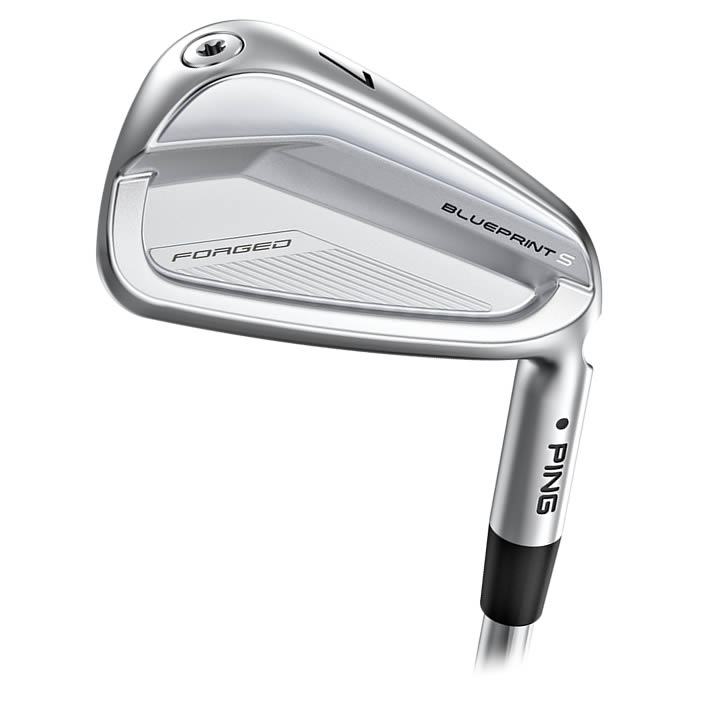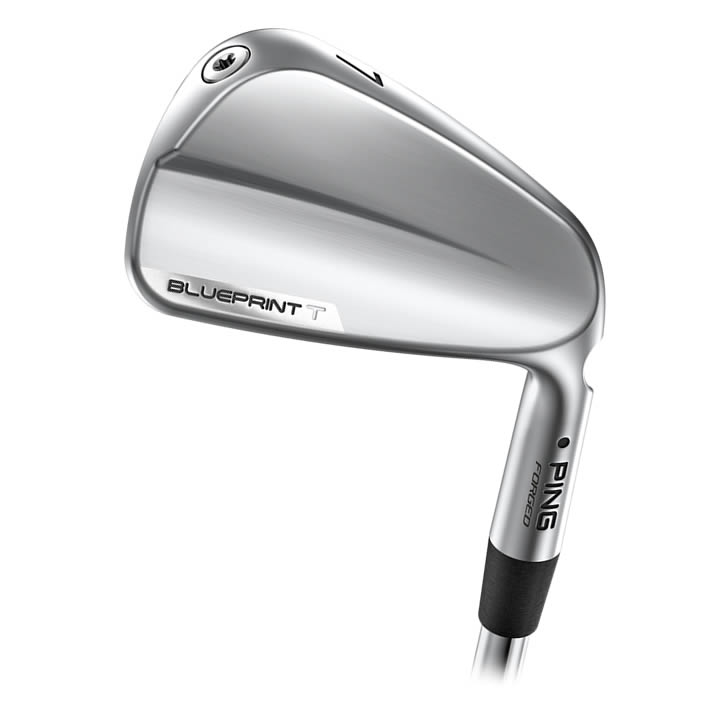New Ping Blueprints – the elite player’s masterplan for better control
The 2019 Blueprint and 2021 i59 irons have been updated and are already winners on tour
By Tony Dear
As has become the norm in recent years, new product launches began slowly appearing in the Fall – non-flagship, relatively low-impact, game-improvement club models mainly.
That original torpidity grew into a sluggish trickle around the start of the year and now, in the days ahead of the 2024 PGA Merchandise Show in Orlando, we are in full release mode. OEM marketing machines are working overtime, eagerly spreading the news of their latest tech-infused wonder-clubs.
Commonly referred to in press-releases and equipment news reports have been the role Artificial Intelligence (AI) played in the creation of a club as well as its Moment of Inertia or MoI (PXG, TaylorMade and forgiveness supremo Ping have all made headlines with drivers boasting MoIs of 10,000 grams per square centimeter.) If they didn’t appear in the headline, these terms usually made it into a subhead or, at the very least, came up frequently in the story itself.
Their absence in news of Ping’s Blueprint T and Blueprint S irons may not have been startling exactly, though it was unforeseen. AI was not employed in the development of either club and their MoIs really aren’t that big a deal to the sort of golfer that plays them. Created with input from, and currently in the bags of, Ping’s Tour staff, these irons are designed for better players who generate plenty of clubhead speed and hit the ball consistently on the sweetspot.
While forgiveness may be important to the less-proficient player – one whose handicap exceeds 15, say – it isn’t a priority for those who are looking for refined looks, control, feel, precision, and workability. These golfers are less concerned with how a poorly-struck 7-iron will perform than how it will enable them to work the ball into tight pins and how good it feels while doing it.
Demand for the Blueprints – the T in particular – will, thus, be limited. Forged from 8620 Carbon-Steel, the Blueprint T may look very appealing to professional or scratch golfers but it will put the willies up most. Which is to say it will probably scare them stiff. It may be ever-so-slightly bigger, with longer blade lengths, than the original Blueprint which was really really compact, but we are still talking sleek.
There’s actually a touch more offset too, but not so much the serial – or even occasional – slicer will notice. A tour pro or college golfer might, though. Likewise, only the skilled golfer is likely to perceive the small rise in MoI resulting from the combination of high-density toe screw and shaft tip weight which make the head a shred more stable.
A narrower sole, precision-milled grooves and a Hydropearl 2.0 finish complete a package the advanced ballstriker will certainly appreciate.
The Blueprint S, meanwhile, is also forged from 8620 Carbon-Steel but features a good bit more tech in the form of a complex, multi-stage forging process – Precision Pocket Forging – in the 3-5 irons that allowed Ping to increase the size of the clubhead while lowering the Center of Gravity (CG) to affect a higher launch.
A pocket forged in the back cavity saved 10 grams which Ping pushed into the sole to lower the CG and, yes, raise the MoI a little. The pocket is filled with soft elastomer, like that in the i230, which enhances the club’s feel. The sole is slightly narrower than that of the i59 which this club replaces, but a high-density toe screw and shaft tip weight ensure the lower CG.
Overall, the 3, 4, and 5-irons may be slightly larger than the i59 long irons, but the shaping and size aren’t dissimilar. And the lofts of each club are the same as those of the Blueprint T and i230 (one degree stronger than the original Blueprint) which should make it easy to blend the three sets to get the exact configuration you prefer. Indeed, there won’t be many Ping loyalists that use the Blueprint T, Blueprint S, or i230 sets through the bag.
Louis Oosthuizen, whose input was largely responsible for the creation of the 2019 Blueprint, won in consecutive weeks on the DP World Tour in December with a mix of the S and T, while Sahith Theegala won last September’s Fortinet Championship on the PGA Tour with an i210 3-iron and Blueprint S 4-PW.
The Deets
- $235 per iron (steel), $245 (graphite) – 3-PW
- Shafts: True Temper Dynamic Gold 120 (steel, both models), Ping Alta CB Black (graphite – Blueprint S only)
- Lofts: 4 – 22.5˚, 7 – 33˚, PW – 45˚ (Power Spec and Retro Spec loft configurations available)
- Right and left-hand
- ping.com
Colorado AvidGolfer Magazine is the state’s leading resource for golf and the lifestyle that surrounds it, publishing eight issues annually and proudly delivering daily content via coloradoavidgolfer.com.
Follow us on Twitter, Facebook and Instagram
Leaving Negative Thoughts Behind when You Head to the Tee Box
How does worrying impact our golf performance? What strategies can we use to manage it?
All in the Family Meal
The secret ingredient of Colorado golf course success is well-fed caddies, cooks and groundskeepers
CSU Grad Davis Bryant Discusses His Rise as a Pro Golfer
Colorado State grad Davis Bryant opens up on his path to the pros and what keeps him busy when he’s off the course




